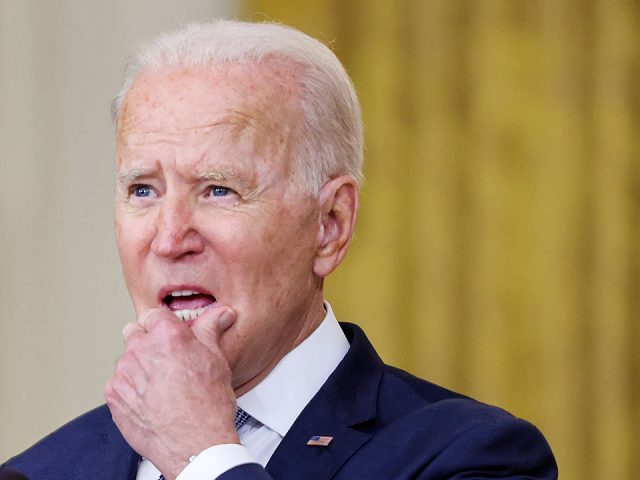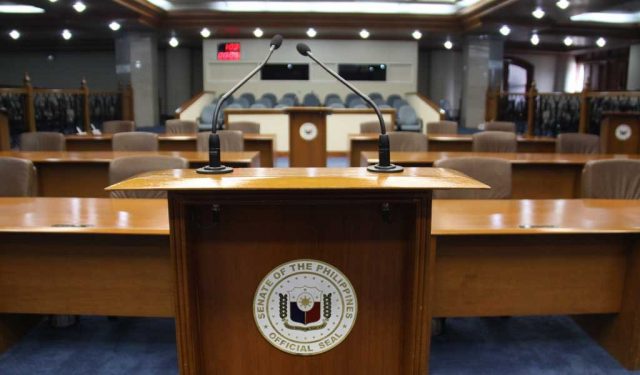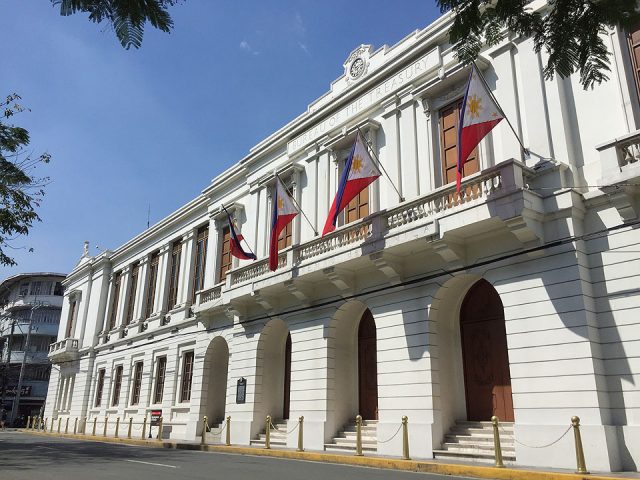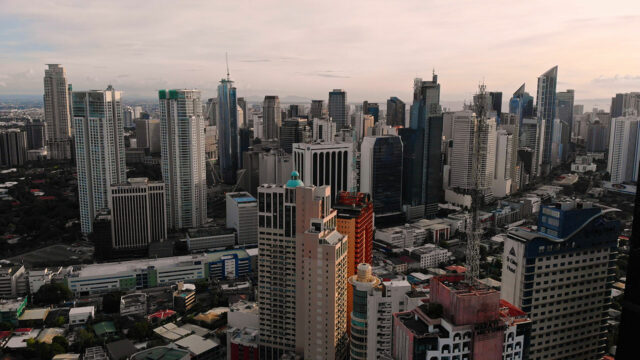By Kyle Aristophere T. Atienza, Reporter
US President Joseph R. Biden, Jr. spoke with presumptive Philippine president Ferdinand “Bongbong” R. Marcos, Jr. on the phone on Thursday to congratulate him on his election.
“President Biden underscored that he looks forward to working with the president-elect to continue strengthening the US-Philippine alliance,” the White House said in a statement posted on its website.
The US leader also wanted to expand bilateral cooperation on issues including the fight against the coronavirus, addressing the climate crisis, promoting broad-based economic growth, and respect for human rights, it added.
Philippine relations with the US under Mr. Marcos would be better but “will not be exclusive to anyone,” his spokesman Victor D. Rodriguez told the ABS-CBN News Channel.
“The interest of the Filipino people comes first and it will never be compromised, especially our territorial integrity,” he added.
Mr. Marcos had assured the US president that the Philippines “has always held the United States in high regard as a friend, an ally, and a partner,” his political party said in a statement.
“I have also invited President Biden to my inaugural on June 30, which could further fortify the relationship of the two countries,” the presumptive president was quoted as saying.
In an earlier statement, US State Secretary Antony Blinken also congratulated Mr. Marcos and cited the long-standing relationship between the two countries that is “rooted in a long and interwoven history, shared values and interests, and people-to-people ties.”
“As friends, partners, and allies, we will continue to collaborate closely with the Philippines to promote respect for human rights and to advance a free and open, connected, prosperous, secure and resilient Indo-Pacific region,” he said.
The resource-rich waterway is a key global shipping route that is subject to overlapping territorial claims involving other Southeast Asian nations.
Based on partial and unofficial results with 98.4% of the vote counted, Mr. Marcos had 31.1 million votes as of 4 p.m., more than double that of Vice-President Maria Leonor G. Robredo.
Mr. Marcos is set to win by a landslide and clinch a remarkable comeback for his family.
He will be the first candidate to win a majority in a Philippine presidential election since his father’s two-decade rule.
Mr. Marcos fled into exile in Hawaii with his family during a 1986 “people power” street uprising that ended his father’s autocratic 20-year rule. He has served as a congressman and senator since his return to the Philippines in 1991.
China, through its ambassador to the Philippines said its ties with the country under a Marcos presidency would be “stronger.”
“I have no doubt that under the next administration, our bilateral relations will only become stronger, our peoples closer and our cooperation deeper and wider,” Chinese Ambassador to the Philippines Huang Xilian said in a statement.
Mr. Marcos and his vice-presidential running mate Sara Z. Duterte-Carpio, who is also set to win by a landslide, have vowed to continue the key policies of outgoing President Rodrigo R. Duterte.
Philippines-Chinese relations warmed under Mr. Duterte, who sought closer trade and investment ties with its neighbor. He set aside a United Nations-backed arbitral ruling that invalidated China’s claim to more than 80% of the sea in exchange for trade and investment pledges.
The Philippines is critical in the dispute between the US and China.
Manila is a long-standing treaty ally of the US. Experts have said the victory of Mr. Marcos is a potential blow to US efforts to push back against China and maintain a rule-based order in the Indo-Pacific region.
It is logical for both the US and China to maintain and cultivate good relations with the new leadership because “it is the best way for them to protect their own interests,” said Jay L. Batongbacal, a maritime expert from the University of the Philippines.
“For the US, historically and geopolitically, the Philippines has been and remains a major bridgehead or portal into Asia,” he said in a Facebook Messenger chat. “At present, it remains one of its most strategic links to the Indo-Pacific region.”
He said Mr. Marcos is likely to lean toward China in the same way that Mr. Duterte did. “China will also try to capitalize on its friendship with the family to reel the country into orbit around it.”
“This speed of sending congratulations by the US had precedent when they congratulated Duterte within the week of elections in 2016,” said Hansley A. Juliano, a former political science professor studying at Nagoya University’s Graduate School of International Development in Japan.
“Up until the Aquino administration, the US waited for the proclamation in Congress, which is usually around early June,” he said in a Messenger chat.
Both China and the US sent their messages almost simultaneously, Mr. Juliano said.
“I don’t think it’s a coincidence, and I don’t necessarily think that means the US and China do not care about the checkered history of the Marcos family in sending these,” he said.
“Because Marcos is a very contentious figure who is now going to be Philippine president, they’re already in the middle of taking him into consideration in the superpowers’ competition within Asia.”
“The issue with any alliance is credibility of resolve in fulfilling promises,” Robin Michael U. Garcia, who teaches political economy at the University of the Asia and Pacific, said in a Facebook Messenger chat. “Whether it’s the US, Japan, China or EU, the Philippines should be observant of the actions of partners and allies.”
Sonny A. Africa, executive director of Ibon Foundation, said the US’ statement of support is “extremely” early “because the election commission has yet to release official results and there are still concerns about reported irregularities.”
“The overriding foreign policy interest of the US for the Philippines because of their geopolitical objectives in the region is ominous,” he said in a Messenger chat. “It could also mean their cooperation in rehabilitating the image of the Marcos family.”
Meanwhile, Mr. Marcos held a post-election party attended by billionaires and socialites in the capital region on Monday night, based on photos circulating online, when partial tallies started showing a landslide victory for him.
Among those who attended the event were Sabin M. Aboitiz, president and chief executive officer of Aboitiz Equity Ventures Inc., which has business interests in finance, energy, food manufacturing, infrastructure and real estate.
Mr. Aboitiz sat beside Mr. Marcos, who was surrounded by several tycoons.
Gregoria Maria “Greggy” Araneta, chief of PhilWeb Corp. and Araneta Properties, Inc. was also at the gathering.
Kevin L. Tan, CEO at Alliance Global Group, Inc., the parent company of Megaworld Properties & Holdings, Inc. and a company that holds the franchise of McDonald’s Corp. in the Philippines, also sat beside Mr. Marcos.
Miss Universe 1973 Margie Moran-Floirendo also attended the gathering. Earlier, a video of her singing Mr. Marcos’ campaign song with Iñigo Zobel circulated online. Mr. Inigo is a cousin of Jaime Zobel de Ayala, chairman emeritus at Ayala Corp.










![[MANILA WATER]faucet-gad122e1ab_1920](https://www.bworldonline.com/wp-content/uploads/2021/12/MANILA-WATERfaucet-gad122e1ab_1920-640x427.jpg)

